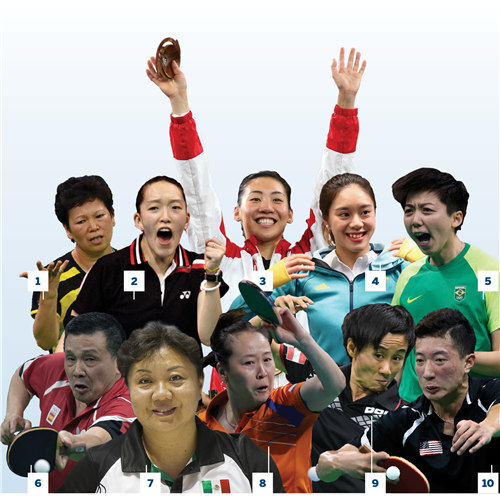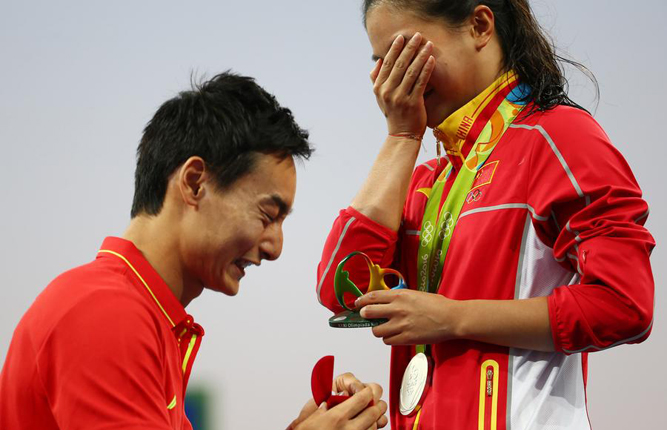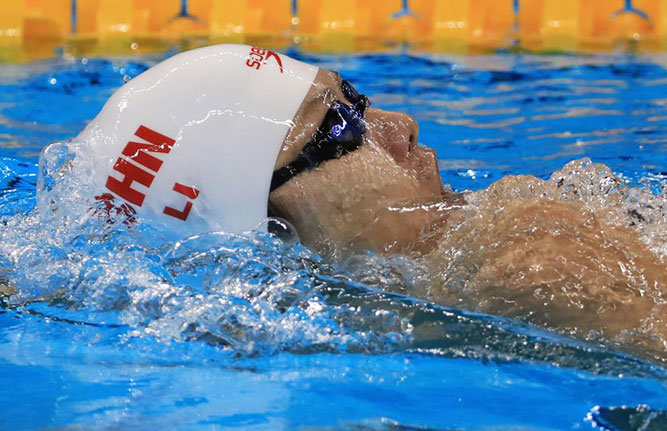Chinese, but competing under a different flag
By SUN XIAOCHEN (China Daily) Updated: 2016-08-15 02:15
 |
|
PHOTOS BY CHINA DAILY, XINHUA, AP, AFP, REUTERS AND GETTY |
In the age of globalization, competing at the Olympics means potentially coming up against former teammates who now represent rival nations — a reality Team China must confront in Rio de Janeiro.
Sports with a strong base in China produce many world-class athletes, and a growing number are being welcomed by other countries to use their skills in international competition, such as at the Summer Games.
In table tennis alone, as many as 30 athletes born in China or who have Chinese ancestry have qualified for one of the 140 places in the men's and women's singles draws at the Rio Olympics, not including the 12 representing China, Hong Kong and Chinese Taipei.
When the women's team competition between China and Brazil began on Friday, the first singles match looked like a game from the Chinese National Games, as both players spoke the same language and used a similar attacking style.
The paddler in the Brazil jersey who received huge cheers from the crowd was Gui Lin, a Chinese-born athlete who moved to the South American nation in 2005.
Although Gui lost to her opponent, Liu Shiwen, the world No 1, in just 19 minutes, for her to appear at the Olympics at all — not to mention representing the host nation — was a dream come true.
"If I'd stayed in China, I wouldn't have had the opportunity to compete at the Olympics because there are way too many players there. It was not an easy decision to make, but it was all worth it," said the 22-year-old, who lives and trains in Sao Paulo.
The matchup underlined a trend dating back to the 1980s of Chinese athletes switching nationality to compete for other nations, driven by the prospect of brighter career opportunities.









